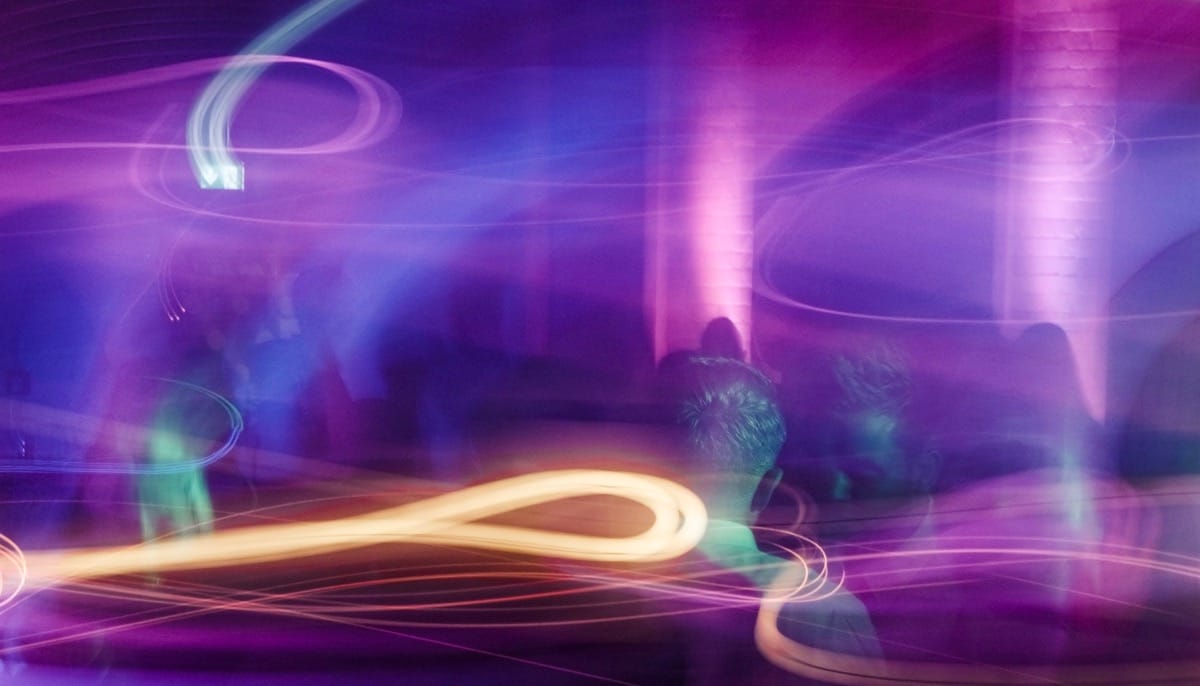A few months ago, I went out for a night of dancing in the Castro district of San Francisco. Gay men danced amongst queer women, who danced amongst gender-queers. Dancing in a circle, we sang along to the music of Adele, Beyonce, and Lady Gaga — music filled with words that encouraged us to love ourselves, embrace our broken hearts, and live fully in our joy. As I danced, my anxiety departed, and I felt at home.
Chögyam Trungpa Rinpoche once described nightclubs as poorly-lit dungeons filled with people avoiding fear through cheap beer and dancing like “drunken apes.” But being out in the Castro was different. This club was filled with people finding themselves in the music, seeing joy mirrored in others, and feeling the warmth of our bright, loving hearts.
I’ve thought about this joyful night ever since. Dancing in that nightclub, my heart felt alive and full. For me, the feeling of joy is simple, pure, and light — but it’s also fleeting. When it leaves, its absence is potent.
Sometimes joy leaves us for natural and obvious reasons, like saying goodbye to our loved ones after a visit home. Other times, joy leaves us for reasons that are completely unjust.
One minute joy is there, and the next it’s lost — even in the places we were so sure we could find it.
I think of the 49 people murdered at Pulse nightclub in June 2016 — a group of mostly queer and trans Latinx folks went out that night to dance, sing, and love. Or the 59 people who were killed while enjoying a country-music concert in Las Vegas last October. I think of the 17 people, mostly students, killed by a gunman just last week at a high school in South Florida — a space meant for cultivating passion, furthering education, and fostering friendship and community.
Our society actively strips us of joy in a number of ways. It’s taken daily through racism, incarceration, guns, and capitalism. Our joy is taken through transantagonism, homophobia, sexism, toxic masculinity, and abuse. One minute it’s there, and the next it’s lost — even in the places we were so sure we could find it. Speaking to the struggles of queer people, poet Andrea Gibson writes in their poem reflecting on the Orlando shooting:
The only place they ever thought was safe,
and the only place they thought they did not have to hide,
and the only place they were wanted because, because of who they loved,
and how they loved, and how they loved,
‘til someone walked through their bodies and asked who was still alive,
and hardly anyone put their hand up.
We shouldn’t have to move through life wondering if we’ll wake up the next day. We shouldn’t have to pray that our lives won’t end unjustly before we’ve experienced the joy and love we desire. Too many of us are weighed down by the grief, oppression and hatred of our world’s cruelty and injustice.
I hope that our society will one day transform into a more enlightened and liberated community. At the same time, I don’t only hope. I believe we can create the world we want through the radical path of dharma.
Our pain can bow to compassion, our traumas to basic goodness.
On the Buddhist path, our collective suffering can make an offering to our joy. Our pain can bow to compassion, our traumas to basic goodness, and our rejection to beauty. Where everyday life encourages a feeling of separation, the dharma offers connection. It shows us that our experiences of heartbreak, vitriol, and helplessness are the keys to liberation, not the obstacle.
Society may tell us it’s inappropriate to speak out about gun control following a massacre, but the dharma demonstrates that avoidance is not the path. The way to transforming this suffering is to address it honestly, to protest, and to act. As we do this, the dharma encourages us to be wise in our actions, our speech, and our livelihood.
That night in the Castro I felt joy, even as the music sang of love lost and hearts broken. The dharma has taught me that it’s possible to find joy amidst our suffering, and freedom amidst repression. It leads us to it.

